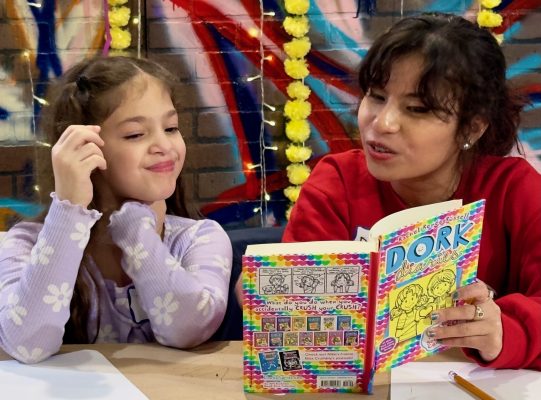For Many Graduate Students, Community-Engaged Scholarship Gives Extra Meaning to the Educational Experience
This story was originally posted by Syracuse University News on April. 15, 2024
Graduate-level learning, research and creative activities take place in classrooms, labs and studios on the Syracuse University campus, but they also occur throughout the community as graduate students, including Newhouse multimedia, photography and design student Diana Varo Lucero, work with local residents of all ages and backgrounds through partnerships with a variety of local organizations.
The Mary Ann Shaw Center for Public and Community Service and the Engaged Humanities Network (EHN) in the College of Arts and Sciences are two campus resources that help graduate students find volunteer opportunities and carry out community-based research initiatives.
The Shaw Center is the University’s hub for experiential learning, matching student volunteers with community needs. Administrative coordinator Kathryn Bradford says volunteers work at the University’s La Casita Cultural Center and other community locations, including the North Side Learning Center, Refugee and Immigrant Self-Empowerment, We Rise Above the Streets Recovery Outreach Inc. and Syracuse City School District (SCSD) schools.
EHN annual research assistantships and summer and winter fellowships provide arts and humanities research opportunities that align with graduate scholarship, coursework and community-building. About 35 graduate students are currently involved across a range of programs, says Brice Nordquist, EHN founder and director.

Hosting Shaw Center weekly story times at La Casita Cultural Center helped Lucero stay connected to her community. She is producing a documentary for her master’s project.
“I chose to volunteer because part of my values as a storyteller and a creative is to use my platform to give back to my community and provide a space for other people to tell their stories,” Lucero says. “I think that to create impact, we must actively become involved with our communities. La Casita has given me the space to learn and become involved. I have met welcoming people, built a supportive community and have discovered my ability to work with different age groups. I’m also still able to work towards contributing to local communities.”